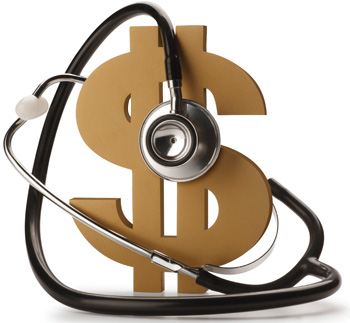Your Financial Health
Improving Your Financial Health
by Charles White
When people are in pain or experiencing symptoms of feeling sick, most of us will seek out medical attention – usually be in the form of medical practitioner. Have you ever noticed that when you go in for treatment, the first thing they will ask you is, “When was the last time that you had a physical exam? Now, you may say, “I am sick, what relevance does that have to my current situation?” It is relevant because had you been examined when you were not sick, the doctor may have picked up on indications of a potential problem with your body. If there appeared to be a potential problem on the horizon, an inexpensive treatment may have been sought out before it became a bigger issue.
THE FINANCIAL CANCER. The greatest harm to your financial health is and will always be debt or the potential debt that you will owe. Now, some people will say, “This debt has giving me a better position in life!” These people have gone into debt for the student loans, new cars, houses, clothing, etc. But I like what the scriptures say:
Better is a dry morsel, and quietness therewith, than an house full of sacrifices with strife. (Proverbs 17:1)
If you have ever been in debt and the majority of your income is going to pay for the debt, you know what strife is in a household.
The problem with many households is that they owe far more in debts and have very few assets to sustain those debts. Debt can be a cancer to your financial body unless it is addressed.
THE ANNUAL EXAM. In the same way that you have physical examinations, you should give your financial “body” a once over to see if there are potential problems arising. The best tools to help you determine the amount of debt you owe are your credit reports. The main credit reports are from Experian, Equifax and TransUnion. You can get these reports for free once a year by visiting AnnualCreditReport.com.
THE DIAGNOSIS. A balance sheet will easily help you determine your current financial condition. What assets and liabilities are on your personal balance sheet? In simple terms, what do you own and who do you owe? For the sake of simplicity, let’s define assets as what brings in money from what you own (not your job) and a liability as the debt you owe – either long term or short term. You can prepare your own balance sheet on a software program like Excel or even with a sheet of paper divided into two columns separating what you owe from what you own. Please note: the income you receive from your job is NOT an asset. An asset is something you own, such as property, that is either currently providing income or can be sold for a profit. This can be a very sobering exercise because most people own very little and owe a lot.
THE TREATMENT PLAN. The good news is the solution for debt is simple: pay it down and reduce or eliminate liabilities. If you can’t accomplish this with the income you’re currently earning, you’ll need to find ways to create greater income through another job or investing in things to increase your income.
To increase your assets and to help reduce your debt, the United States government makes several great publications available at no or low cost. Some titles include:
- 51 Ways to Save Hundreds On Loans and Credit Cards
- Act Fast If You Can’t Pay Your Credit Cards
- Coping With Debt
- Federal Student Aid Grant Programs
- 13 Things Everyone Should Know About Investing
- My New Money Goal
- Save Some and Spend Some
These and many, many other publications are free from publications.usa.gov
Maintaining your body’s physical health requires intentional effort and discipline. Unless you are independently wealthy, the same holds true for maintaining your financial health. Seek out the advice of a professional financial planner to help tailor a plan for you based on your needs, resources and financial goals.
